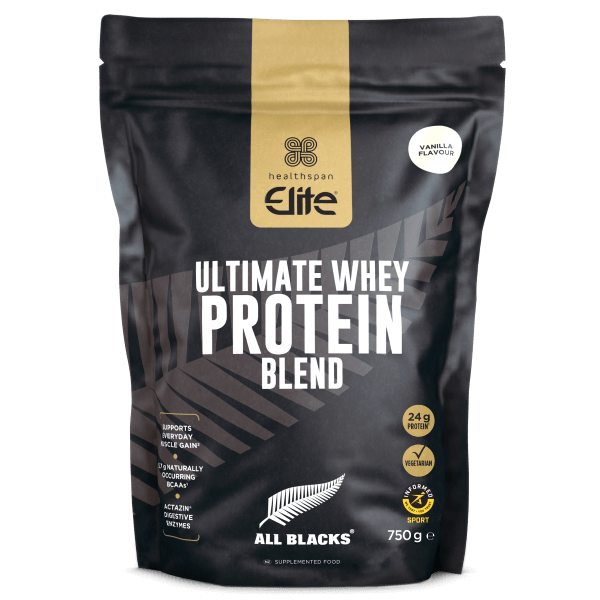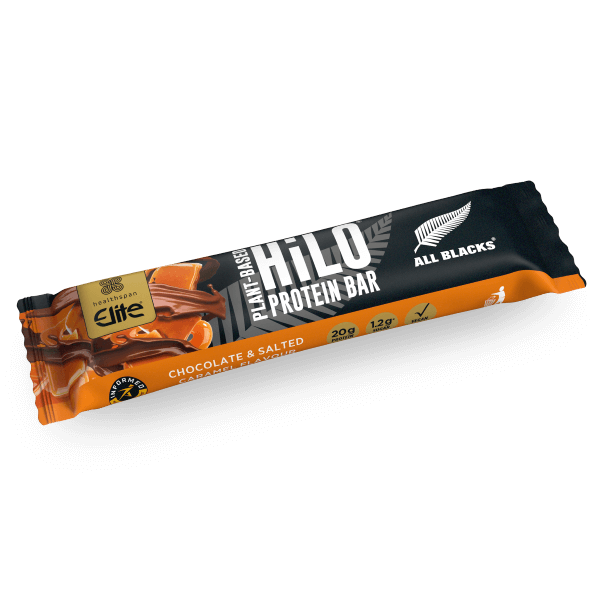Sports nutritionist Rob Hobson on why the body needs protein and how to make sure you get enough to support your sports performance.
What is protein?
Proteins are made up of amino acids; the smaller molecules join together to form complex protein structures. There are 20 different amino acids, of which 11 can be made in the body and 9 need to come from the diet; these last 9 are known as 'essential'.
Protein has many functions in the body, and one of the main ones is to help with the growth and recovery of muscle tissue. This nutrient is essential for sportspeople to help them recover from their training sessions.
Do sportspeople need more protein?
Sportspeople require more protein than those who are less active, because of the increased demands put on their bodies during training and competing. These needs can differ between athletes depending on the sports they are involved in.
How do protein needs vary between sports?
Protein requirements depend on several factors related to body composition, activity levels and individual performance ambitions.
The guidance suggests that the daily protein intake required to support metabolic adaptation, repair, and growth is within the range of 1.2g to 2g per kilogram of bodyweight.
During short periods of intensified training or when feeling low on energy, more protein than usual may be required.
What factors affect protein needs?
Several factors can influence the amount of protein an athlete needs.
Training
Protein needs can increase with higher-intensity training. Sports such as weightlifting and sprinting will require more protein to help repair damage to the muscle and remodel new muscle tissue.
Body Composition
Some sports require athletes, such as competitive bodybuilders, to gain and maintain lean muscle mass. Those who need to alter their body shape close to competition, such as boxers, may also have periods where their protein intake is increased to help them lose body fat.
Gender
Generally, males require more protein than females, due to their higher muscle mass. The protein needs of female athletes can vary depending on their sport and training goals, and protein needs may also differ at different stages of the menstrual cycle.
How much protein is needed in strength and power sports?
Strength and power athletes include bodybuilders, powerlifters, boxers, and wrestlers, in disciplines involving short bursts of intense activity that require high energy and strength. Athletes engaged in these sports require the most protein.
To support muscle mass and strength gains, strength and power athletes need a protein intake of around 1.6g-2g per kg of bodyweight per day. This high protein intake helps offset the catabolic effects of intense strength training, where muscle and fat is broken down to provide energy.
Protein supports the anabolic response necessary for muscle hypertrophy, where muscle proteins are created faster than they are broken down, leading to growth.
What are the protein needs for endurance sports?
Endurance sports include running, cycling, and swimming. Participants in these sports engage in prolonged, lower-intensity activity, which requires larger amounts of carbohydrates as fuel.
Endurance athletes still need enough protein to support muscle repair, growth, and immune function, and this is more than for less-active people. Endurance athletes should aim for a protein intake of 1.2g-1.4g per kg of bodyweight per day.
Endurance athletes should eat protein and carbohydrates before and after training to support muscle repair and glycogen replenishment.

Elite All Blacks Ultimate Whey Protein Blend
Protein powder co-created with the All Blacks
- 24g protein per serving to support muscle growth
- Added protease to break down protein for better absorption
- Available in vanilla, strawberry and chocolate. Low in sugar
Team Sports
Team sports include football, rugby, basketball, and hockey, and require a balance of protein and carbohydrates to support training and performance.
Protein intakes are similar to endurance sports: between 1.2g and 1.4g of protein per kg of bodyweight per day. However, this may fluctuate depending on activity level and training regime.
Is it difficult for sportspeople to have enough protein in their diet?
It's easy for athletes to get enough protein in their diet. Generally, most athletes consume more than they need, often at the expense of carbohydrates.
Vegan athletes may require more effort to plan where their protein comes from to ensure they get a good balance of amino acids, especially leucine, which promotes muscle protein synthesis. This can be achieved by eating a variety of protein sources throughout the day.
It is now understood that the timing of protein intake is just as important for recovery as the traditional one-hour window after exercise. This anabolic window is extended for up to 24 hours after training, so athletes should 'drip-feed' their protein across the day to get the maximum benefit.
What are the best sources of protein?
These best protein sources are animal sources, including meat, fish, and eggs, as these contain all the essential amino acids.
The best plant sources of protein are soya and pea, but many other foods contain this nutrient, including nuts, seeds, beans, pulses, and oats. Carbohydrate foods such as bread and pasta also contain small amounts of protein, contributing to daily intake.
- 2 eggs = 13g protein
- 50g porridge oats made up with 180ml skimmed milk = 12g protein
- 100g chicken breast (1 small) = 30g protein
- 1 can tuna = 32g protein
- 100g cooked prawns = 15g protein
- 100g Quorn mince = 13g protein
- 100g beef mince = 30g protein
- 100g tofu = 12g protein
- 120g fresh salmon (1 small fillet) = 21g protein
- 125g plain yoghurt = 7g protein
- 100g Cottage cheese = 9g protein
- 250ml skimmed milk = 8g protein
When should you take a protein supplement?
It is possible to get all the protein you need from your diet, but protein shakes and bars are more convenient. Protein shakes are helpful after a training session, as they take very little time to prepare, and you can drink them on the move, while protein bars require no preparation and are highly portable.
Shakes guarantee the correct quantity and quality of protein, comprising all the essential amino acids, including leucine, which is particularly useful for vegan athletes. Athletes with a high requirement for protein may also find shakes or bars more convenient to take across the day than preparing fresh food.
Sportspeople have a higher requirement for protein than non-active people. As with every aspect of sports nutrition, every athlete is different, and the amount and timing of protein intake can differ depending on the type of sport and competition timings.

Elite All Blacks Plant-Based HiLo Protein Bar
Delicious protein bars packed with 20g protein
- Chocolate and Salted Caramel, Black Forest Gateau and White Chocolate Raspberry flavours
- 6.7g fibre per bar, only 3.5g sugar










